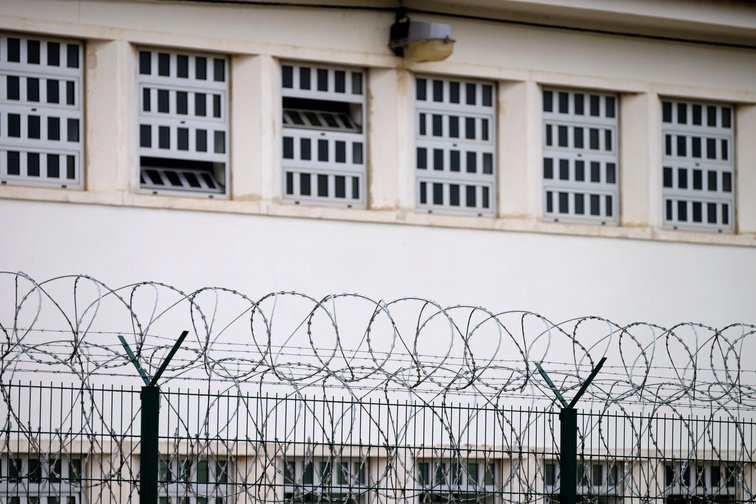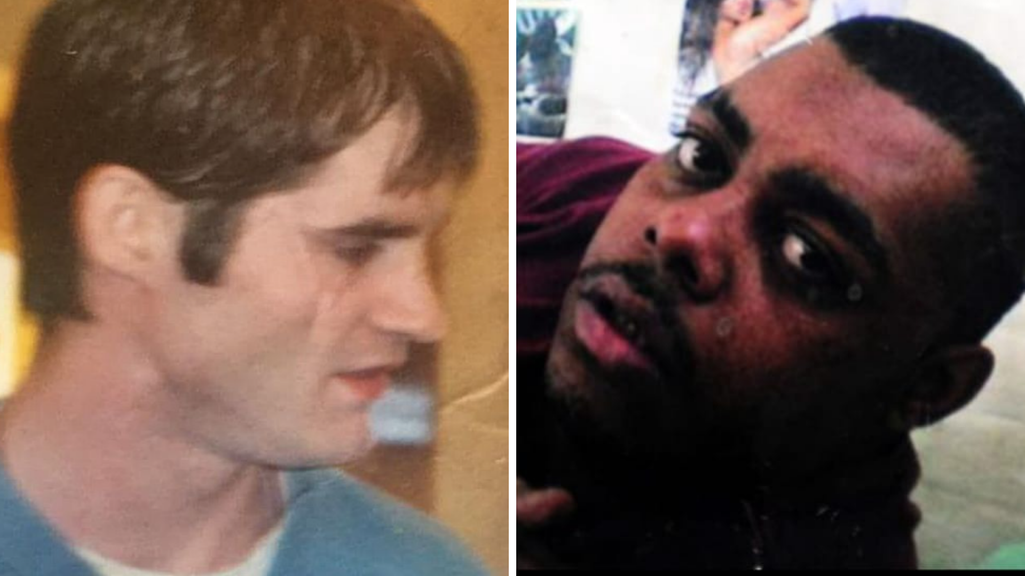
Prisoners ‘may have been refused parole due to fake crimes on files’
Exclusive: Claim comes as Labour, Lib Dems, Greens and SNP add to pressure for those serving ‘inhuman’ indefinite sentences to be freed

Prisoners serving inhumane indefinite sentences may have lost appeals for their freedom because non-existent offences had been wrongly included in their files, openDemocracy can reveal.
This website has spoken to families and supporters of three prisoners serving ‘imprisonment for public protection’ (IPP) jail sentences whose files made reference to crimes they had never been accused of.
In at least one case, we have seen evidence that a man was refused parole after authorities compiled a dossier that included non-existent offences. In another, a man was beaten by other inmates who wrongly believed he was a sex offender after seeing an incorrect reference in his file.
Now senior political figures from Labour, the SNP, the Liberal Democrats and the Green Party have added to calls for those still locked up under IPP sentences, which were abolished in 2012, to be released.
Related story
The Parole Board turned down a request for parole by Welsh prisoner Leroy Douglas in 2020.
In its written decision, under a section titled “analysis of offending”, the board wrote: “In 2003, the seriousness of your offending escalated and you received [a] four-year sentence for robbery.”
In reality, Douglas was behind bars on a separate sentence for the whole of 2003. “Leroy could not have been out committing crimes as he was in prison,” said his aunt Norma Borrett.
It was not until 2021, more than a year after the inaccurate report was produced, that Douglas was finally deemed safe to transfer to an open prison.
Yet since then, as we reported last month, Leroy’s hearings have been repeatedly delayed – once because the Parole Board said it didn’t have enough information and then again because a legal representative failed to turn up – and he remains in a closed jail.
Leroy has served time in more than 30 different prisons and Borrett believes shoddy record-keeping may be responsible for the errors.
The charge on his file – he was in prison at the time. They said he stole keys to his girlfriend’s car. He’s never had a girlfriend
Campaigner Shirley Debono told openDemocracy there were similar errors in the file of another man serving an IPP sentence, Garth O’Hagan, when he applied for parole. openDemocracy understands he is pursuing legal action.
“There were charges on there [for] another prisoner,” Shirley said. “Charges of domestic abuse, honour domestic abuse, and involvement in forced marriages. And the other charge that was on his file – he was actually in prison at the time. They said he had stolen the keys to his girlfriend’s car.
“Garth has never had a girlfriend. He don’t drive. He was inside when that offence was taking place. It’s all fake. It shouldn’t be on file.”
The Parole Board told openDemocracy it was not responsible for preparing the documents and that the Ministry of Justice had compiled them through its Public Protection Casework Section. The Ministry of Justice declined to comment on the errors in Leroy’s file, or on Shirley’s allegations.
‘He is broken’
Some 8,000 IPP sentences were given out by judges in England and Wales between 2005 and 2012.
They were implemented under former Labour justice secretary David Blunkett, who today admits their introduction was wrong.
“The indeterminate sentence remains a continuing nightmare for so many individuals and, of course, their families,” he told openDemocracy.
“Some individuals have never been able to persuade the Parole Board that they were safe for release, but many others have been out on licence and then re-called for minor infringements, only to find themselves subject to the IPP regime.”

Luton man Martin Myers, 40, has been in prison on an IPP sentence since 2006.
In 2013, he was wrongly accused of being a sex offender in a letter from the Parole Board that was seen by fellow inmates. He was savagely beaten.
Martin made a complaint to the prison service in June 2015 after he was attacked by three men who made it clear they were targeting him because of his supposed sexual offences. The Ministry of Justice admitted its mistake and offered Myers £21,000 in compensation, but no effort was made to correct either his record or his reputation with other prisoners, and he was attacked three further times in 2017 and 2018.
This was not the first time errors had been made in Martin’s file. In another letter seen by openDemocracy, from 2012, a senior prison officer admits that a reference to Martin being a “hostage taker” in his notes could similarly not be verified.
“He has shown remorse for his crimes and wants to rebuild what’s left of his life,” said Shirley of Martin. “He is frightened that he may lose his mum while he is inside and doesn’t know how he will cope.
“When I speak with Martin, I can tell in his voice that he is broken. It’s very sad. He has done his time over and over.”
‘A catch-22’
Fiona Robertson, the disability justice officer for the SNP’s Disabled Members Group, told openDemocracy that IPP sentences had a “catastrophic effect” on prisoners' mental health, “causing permanent trauma which puts them at risk of self-harm, suicide and the physical effects of untreated mental illness”.
She added: “IPP sentences must be understood as a critical disability justice fight given the long-term effects on the people subjected to them.
“The criminal justice system already disproportionately incarcerates disabled people, especially people with mental health or learning disabilities.
“Even when recognised, mental health care in prisons is absent at best, and actively harmful at worst.”
The government must act quickly and review all sentences of this kind to prevent the cruel injustice continuing
Robertson’s words are echoed by Leroy’s family, who say his mental health has been severely affected by serving a sentence without end, and that this has been responsible for some of his behaviour while inside – behaviour that was cited as another reason not to give him parole back in 2020, which they say is a “catch-22”.
Another family told openDemocracy that a relative serving an IPP sentence had been sectioned while in prison and had had medication refused. A Prison Service spokesperson said they could not comment on the healthcare of inmates.
‘So patently wrong and unjust’
Lib Dem peer Meral Hussein-Ece, the party’s former equalities spokesperson, told openDemocracy: “IPP sentences have been abolished for nearly ten years and lawmakers agree it’s inhuman. But nothing has really been done to help people incarcerated who should not be there.”
Green peer Jenny Jones called the continued detention of IPP prisoners “so patently wrong and unjust, it’s hard to believe that it’s real”.
“Those IPP prisoners still held, suffer physical and mental health challenges as well as over-prolonged incarceration. Their numbers also include a preponderance of working-class white, Black and Asian men and women who have languished in prison for over a decade,” she said.
“The government must act quickly and review all sentences of this kind to prevent the cruel injustice continuing.”
Andrea Coomber, chief executive of the Howard League for Penal Reform, said: “The IPP scandal is a decade-long injustice that must end.
“About 6,000 people remained in prison on an IPP after the sentence’s abolition and subsequent releases have been counterbalanced by a worry increase in recalls [to jail], most of which have been for administrative breaches of licence conditions.”
Grassroots justice organisation CAGE has also called for the retrospective abolition of IPP sentences.
Its head of advocacy, Anas Mustapha, told us IPP sentences had been “part of the previous Labour government’s cruel and repressive law and order agenda” and had echoed the “USA prison industrial complex” by trapping prisoners “in an endless cycle of uncertainty and indignity”.
“The examples shown by [this] investigation highlight the cruelty and lack of humanity of a criminal justice system that is not fit for purpose,” Mustapha added. “As part of a broader policy eroding the rule of law, the government destroyed legal aid, effectively denying access to justice for ‘unpopular’ people like prisoners.
“We add our voice to those calling for IPP prisoners to be freed as soon as their minimum tariffs have been served. There must be an urgent review into the continued imprisonment of people on IPP.”
Read more
Get our weekly email





Comments
We encourage anyone to comment, please consult the oD commenting guidelines if you have any questions.